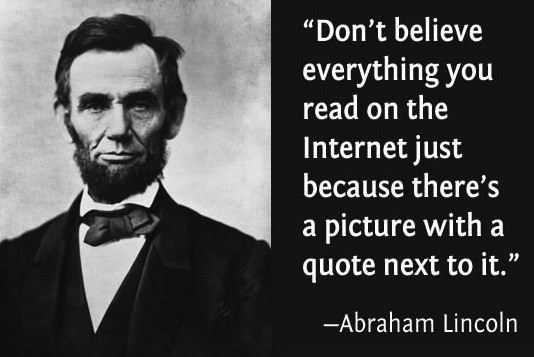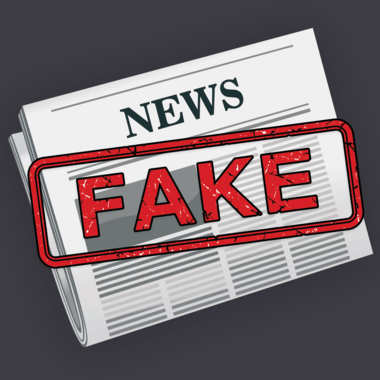Ah, predictable me. If you’ve at all been a reader of my blog, you can probably predict my dilemma right now. These days, I suspect I am hardly alone in this quandary. I’ve written about it in the past: the push and pull between the public school teacher me and private citizen me.
SO here’s my (utterly predictable) dilemma: How does one teach in these politically-charged, complicated times when “fake news” masquerades as the truth, when “real news” is labeled “fake news,” when Orwellian terms such as “post truth” and “alternative facts” are no longer the stuff of Dystopian novels, but mainstream discourse?
 And to those of you who are about to call me out for bringing politics into my classroom, let me say this: When language itself is being altered and manipulated, when knowledge itself is being distorted and undermined by the highest offices in this country, politics has clearly forced its way into our classrooms, not vice versa.
And to those of you who are about to call me out for bringing politics into my classroom, let me say this: When language itself is being altered and manipulated, when knowledge itself is being distorted and undermined by the highest offices in this country, politics has clearly forced its way into our classrooms, not vice versa.
Let’s take English class, for example. In English class, we talk about words: what they mean, what impact they have, their origins, their connotations. In English, we research and write. We teach students to be skeptical readers, to find reliable sources, to verify facts, to examine multiple sides of an issue or topic. We do this so our students become good readers and critical thinkers capable of making credible arguments and discerning reliable information in their post-secondary studies, in the workplace, and in the larger world. We do it so they become effective communicators and responsible citizens.
Enter “post-truth,” “fake news,” “alternative facts”; enter a presidential administration which openly disputes easily verifiable facts, which calls the media “the opposition party,” which maligns and berates those who question and attempt to fact-check.
If we are truly “teachers" is it not our responsibility to “teach” students to examine, to question, to discern the truth, to navigate through the complex world of politics, the media, the blogosphere, and propaganda?

It seems to me (I’m primarily speaking of English teachers and Social Studies teachers here) we have three options:
- Do nothing. (Welcome to the path of least resistance and least responsibility).
- Go for it. Lay out the evidence: let videoclips of Spicer, Conway, and Trump speak for themselves (And be prepared for the fall-out).
- Navigate somewhere between 1 & 2. (Provide a path for students to investigate this critical topic for themselves).
Last week, I attempted #3. I amended our Debate unit in Freshman English to include a few days examining Fake News and what has become the murkiness surrounding “the truth.”
Full disclosure here: Designing these lessons was cause for much anxiety and reflection. I teach in a predominantly conservative community which, like much of his country, is deeply divided and deliberately silent in public on many critical issues that matter to us all.
Long story short, here’s what I did and why. If you feel so inclined to use any of this in your own classroom, please steal it outright:
Day 1: Students reflected on their own experience with Fake News and examined how its created.
- Small groups of students discussed examples of fake news they’ve encountered on social media or elsewhere.
- Students shared out with the class.
- Assignment: Students researched the concept of “Fake News.”
Day 2: Students participated in a class discussion on the making of Fake News and its impact on Democracy and “Truth.”
- Students shared their thoughts about From Headline to Photograph: A Fake News Masterpiece.
- Students reflected on (wrote and then discussed) James Madison's quote: “Knowledge will forever govern ignorance; and a people who mean to be their own governors must arm themselves with the power which knowledge gives.”
- Students then reflected on (wrote and then discussed) Serina Tavernise's quote: “Fake news, and the proliferation of raw opinion that passes for news, is creating confusion, punching holes in what is true, causing a kind of fun-house effect that leaves the reader doubting everything, including real news.” - New York Times
Day 3: I took dictation in a class K-W-L (Know, Want-to-Know, Learn) exploring the terms “Post-Truth” and “Alternative Facts,” and I introduced the “Triple-Washed Facts” process.
- With a KWL chart on the Smart Board, I presented the terms “post-truth” and “alternative facts.” For each, I asked what we “Know.” I typed as they spoke. Then I asked what we “Want to Know” and I typed out their questions. Then, I had them use their Chromebooks to answer those questions. I then typed as they told me what they “Learned.”
- I introduced the “Triple Wash” Process. This is the process they would use for researching all facts used in this debate unit. 1) Check the Source: reputation, experience, respect 2) Check for “Fishiness": (use your BS detector) Is it too surprising? Too fantastic? Too convenient? 3) Verify it Elsewhere with that “elsewhere” being a separate reliable source.

Over the course of these three days, I never told them what to think. This was very much by design. I orchestrated their own exploration and examination of Fake News and its fallout. I was pleased with the depth of their skepticism, interest, and connection-making. And I was pleased that none of their conclusions came from me.
So now, I’m requiring my students to triple-wash every fact they use in our debate unit and beyond, and I’m imploring them to employ similar rigor to the greater network of information and social media streams in which they live.
In yesterday’s New York Times, Charlie Sykes, former WISN conservative radio host, articulated the necessity of such scrutiny: “The real danger,” he asserted, “is that, inundated with ‘alternative facts,’ many...will simply shrug, asking, ‘What is truth?’ — and not wait for an answer.”
That’s where educators enter the picture. We must be instigators of truth, agitators of critical thinking, provocateurs of free thought.
We must teach students to hold everyone accountable, to relentlessly seek the truth, to look for the larger narrative. As citizens in a democracy, it is our job and theirs to hold none above such scrutiny.
Love the lesson. Now can we pass that on to the public at large?
ReplyDelete